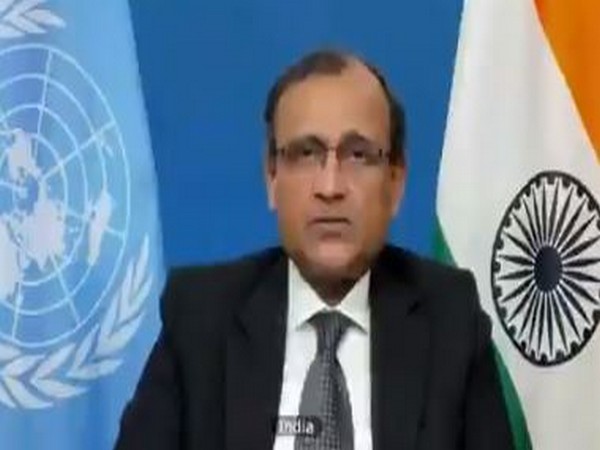India remains strongly committed to cause of global food security: India's envoy at UN
India remains strongly committed to the cause of global food security, Permanent Representative of India to the United Nations, TS Tirumurti said on Thursday (local time).

- Country:
- United States
India remains strongly committed to the cause of global food security, Permanent Representative of India to the United Nations, TS Tirumurti said on Thursday (local time). Speaking at United Nations Security Council (UNSC) open debate on conflict and food security, the Indian envoy said, "India remains strongly committed to the cause of global food security and has over the last several years contributed to UN's Central Emergency Response Fund (CERF) and the United Nations Office for the Coordination of Humanitarian Affairs (UNOCHA) in response to several humanitarian crises. Further, India has always stepped forward to extend aid amounting to millions of tonnes of food grains to several vulnerable countries across the world. In 2019 alone, the WFP sourced approximately 11,000 metric tons of pulses, sorghum, wheat, and rice from India to assist vulnerable populations."
Tirumurti informed the UNSC that India in the midst of the COVID-19 pandemic provided food aid in the form of thousands of metric tonnes of wheat, rice, pulses and lentils to several countries across the world, including Myanmar, Maldives, Afghanistan, Djibouti, Eritrea, Lebanon, Malawi, Sierra Leone, Sudan, South Sudan, Zambia, Zimbabwe and many others, to strengthen their food security in these challenging times. "As recently as last month, India gifted 2000 MT of rice to strengthen food security in Syria. Even as I speak, a ship is en route now from India to deliver 1000MT of food aid each to Madagascar and Comoros," said Tirumurti.
Citing a quote from Indian scriptures, which says "Annam Brahma" - i.e. "food is God", Tirumurti added, "We remain committed to providing assistance to all vulnerable countries to support them in their quest for food security. Our spearheading the resolution for declaring 2023 as the International Year of Millets is in this direction. We are equally committed to providing vaccines to the world so that we tackle Covid and food insecurity at the same time." The World Food Programme (WFP) estimated that the number of people suffering from food insecurity is projected to more than double by the end of 2020, to 270 million people, with the COVID-19 pandemic making it worse.
The "Global Report on Food Crises 2020" brought out by the World Food Programme and 15 other humanitarian and development agencies mentions that more than 77 million people are suffering from acute food insecurity in conflict-affected countries. Focussing on the severity of food insecurity, the Indian envoy quoted Mahatma Gandhi, "There are people in the world so hungry, that God cannot appear to them except in the form of bread".
He said that food security is the basic minimum required especially when we are accosted with such a devastating world crisis in the form of the COVID-19 pandemic. Moreover, the link between armed conflict and conflict-induced food insecurity and the threat of famine has aggravated the situation. He noted that food insecurity is by itself not a sufficient condition for political violence and conflict. The link between the two is context and region-specific and varies according to a country's level of development and the strength of its political institutions and social safety nets.
Tirumurti suggested to UNSC that conflict-induced food-security issues should be taken up by Council only in the context of specific countries where it may pose a threat to international peace and security as fragile states have weak capacities to design, implement and monitor policies and programmes related to food. "We are of the view that armed conflict and terrorism combined with extreme weather, crop pests, food price volatility, exclusion, and economic shocks can devastate any fragile state leading to food insecurity and increase the threat of famine. Armed groups have time and again resorted to scorched-earth tactics and deliberately targeted civilian infrastructures such as land, farm animals, and water wells which erode economic growth and development. Inability to fight locusts, for example, can affect an entire region and even further, and directly affect food security," said the Indian envoy.
Furthermore, Tirumurti urged to UN and member states, "The global community has a moral obligation to act in situations where there are credible reasons to believe that millions of people are in desperate need of assistance. Food assistance alone surely cannot be a long-term sustainable solution to food insecurity. Promoting peace and stability and development is paramount and must include livelihood support, social protection programmes, and community-based approaches including investment in agriculture infrastructure and capacity-building in rural development, especially in conflict areas. This calls for a multi-stakeholder approach that is coherent and devoid of politics. India stands ready to extend support to all such efforts." (ANI)
(This story has not been edited by Devdiscourse staff and is auto-generated from a syndicated feed.)










